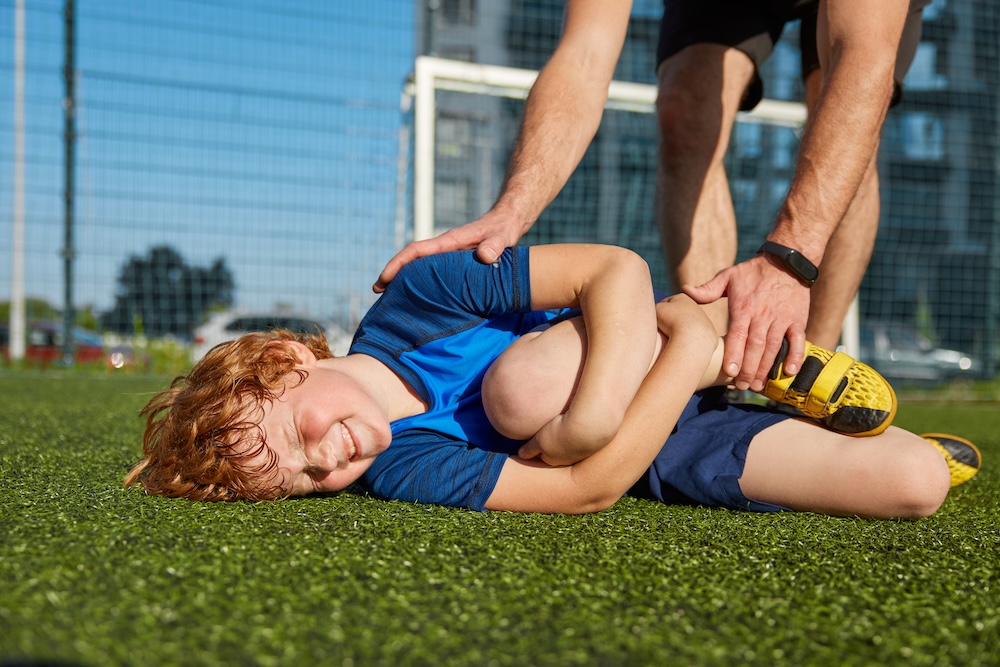Engaging in sports offers children and teens a chance to stay active, build confidence, and foster friendships. Sports also bring a sense of excitement and accomplishment while helping young athletes develop essential skills. However, it’s important to also understand the risks of injury, especially if kids push their limits. There are many things families can do to protect their kids from getting injured so that they can enjoy sports safely.
Common injuries from sports in kids include sprains, strains, growth plate irritation, and stress fractures (which are small bone fractures caused by repeated stress and impact). While all sports can cause injuries, sports with the most contact pose a greater risk of a traumatic injury. We recommend that young athletes avoid specializing in one sport too early. Playing a variety of sports not only provides opportunities to develop a broader range of skills, but it also reduces the risk of repetitive stress injuries. As a parent, you have a key role in guiding children toward age-appropriate sports that match their development and physical abilities. Your pediatrician can also help you assess this.
To prevent injuries and ensure that sports remain safe and fun for kids, encourage your child to take time off. It’s best for children to take at least one day off each week and one month off per year from training for a specific sport. This allows the body to recover. Additionally, your child should have the appropriate protective gear that fits correctly, such as pads, helmets, mouth guards, and eyewear. It is also important for children to strengthen their muscles and flexibility. Conditioning exercises that focus on the muscles used in sports can help build stability. Stretching after practices or games improves flexibility – all of which helps prevent muscle strains.
Another way to prevent injury is to ensure that proper techniques in sports are being used and that safety rules are followed. This includes avoiding head first sliding in baseball and spearing in football. If your child ever feels pain, they should stop playing at once. Playing through pain can turn a minor injury into something serious. Taking breaks during practices and games is also crucial. This is especially the case when the weather is hot so that your child doesn’t get a heat-related illness or fatigue-based injuries. Make sure your child stays hydrated and wears appropriate clothing for the weather as well.
Physical injuries aren’t the only concerns when it comes to sports. Emotional stress can also take a toll on young athletes. Although winning is exciting, it’s important to keep the focus on effort, improvement, and teamwork. Kids should feel encouraged to enjoy sports for the fun, health benefits, and learning opportunities rather than feeling pressured to win.
While sports injuries can’t always be avoided, these steps can minimize the risks. If you have any questions or concerns about sports injuries, call our office. We advise that your child gets evaluated if they experience any point tenderness over a bone, regardless if the swelling is only minimal. Even mild pain should be addressed as it can lead to greater problems.


